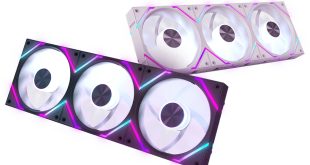Corsair are following up on the success of their H50 cooler with the release of a new Hydro series cooler. This ties in perfectly with their recent release of two air based coolers – the A50 and A70, which KitGuru reviewed a while ago over here. ‘A' for air cooling and ‘H' for Hydro cooling, if only all companies could keep their product ranges so logically named!
The Hydro Series H70 CPU cooler is an evolution of the award-winning Hydro Series H50, with several significant upgrades that enable it to deliver even greater cooling performance. These upgrades include a double-thickness (50mm) radiator with higher heat-exchanging capacity and a pump/cold plate unit with increased efficiency. The H70 also features two 120mm speed-switchable cooling fans in a push-pull configuration to provide increased airflow at low noise levels.
“Thanks to the H70, you no longer need a fin array the size of a small shoebox to cool aggressively overclocked CPUs,” stated John Beekley, VP of Technical Marketing at Corsair. “The H70 stands toe-to-toe with any CPU cooler on the market, and does it with less noise, easier installation, and support of nearly every ATX-compatible case.”
Like the wildly popular H50, the Hydro Series H70 provides the benefits of water cooling in a sealed and pre-filled unit, with no maintenance required. The low profile cold plate is extremely space efficient, and is very low in mass compared to heat pipe based solutions, putting less stress on the system’s motherboard. The H70 includes mounting hardware for most common AMD and Intel CPUs, and, unlike some competitive CPU coolers, includes all necessary fans for high performance operation.
KitGuru says: Are you excited about this newer version of the critically acclaimed H50? Let us know.
 KitGuru KitGuru.net – Tech News | Hardware News | Hardware Reviews | IOS | Mobile | Gaming | Graphics Cards
KitGuru KitGuru.net – Tech News | Hardware News | Hardware Reviews | IOS | Mobile | Gaming | Graphics Cards





